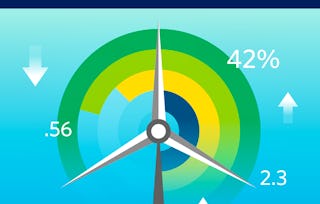The ESG Investing: Setting Standards & Conducting Analysis course provides students with basic knowledge of traditional financial products with some fundamental concepts to help better define what ESG is, including the rationale behind its inception, and how it has developed. Through the series of video, webinar, and reading modules in this course, you’ll learn how to identify and describe the basic principles underpinning the “E”, “S” and “G” in ESG, as well as obtain a brief background of ESG’s origins and evolution. You should also acquire insights into certain global and domestic goals and frameworks that drive and support issuers’ ESG agendas for economic, financial, and ethical purposes, as well as learn how to examine and construct different investment strategies aligned with investment returns, such as negative/exclusionary screening and integration. You should also gain a clearer view of how businesses form their ESG strategies, as well as some of the risks they face, and how they may be mitigated.

ESG Investing: Setting Standards & Conducting Analysis

ESG Investing: Setting Standards & Conducting Analysis
This course is part of ESG Investing: Financial Decisions in Flux Specialization

Instructor: Steven Levine
8,196 already enrolled
Included with
(72 reviews)
Recommended experience
What you'll learn
Describe how environmental, social and governance principals originated and how related practices have been evolving in the financial markets.
Identify global initiatives that helped drive, and continue to support, the framework for ESG investing.
Differentiate the risks a company may face when analyzing it for “E”, “S”, and “G” factors.
Provide details about certain business sector trends such as those in water and waste management, clean transportation, and energy.
Skills you'll gain
Details to know

Add to your LinkedIn profile
See how employees at top companies are mastering in-demand skills

Build your subject-matter expertise
- Learn new concepts from industry experts
- Gain a foundational understanding of a subject or tool
- Develop job-relevant skills with hands-on projects
- Earn a shareable career certificate

There are 6 modules in this course
How have environmental, social, and governance issues come to influence the financial markets and investors’ decision-making? In this introductory module, you will learn how ESG was derived from socially responsible investing (SRI) practices through some examples of its impacts in the 20th century, including the establishment of the Community Reinvestment Act and the formation of the Forum for Sustainable and Responsible Investment. Building on these events, the UN published pivotal reports that led to the integration of ESG factors in the financial markets, spurring a flurry of related, supporting initiatives such as the Principles for Responsible Investing (PRI), the International Integrated Reporting Council, and the Sustainability Accounting Standards Board (SASB), among others.
What's included
3 videos7 readings4 assignments2 peer reviews
The further we progress in this specialization, the more you may spot certain unresolved issues within the ESG investing framework, beginning, perhaps, with how ESG investing itself is defined. The following webinar, “Environmental, Social, Governance (ESG): The Three Hottest Words in Investing”, presented by Gabelli Funds, will further explore the meaning of ESG investing through some of its objectives, including altering corporate behavior by influencing the cost of capital, mitigating idiosyncratic risks, and identifying investment opportunities in areas such as geological and social change. Among other topics, the presentation will also dive into some sustainability themes, including energy, water and waste management, as well as addresses why ESG investing remains a work in progress, and offers insights into some developments market participants may anticipate.
What's included
3 videos1 reading3 assignments1 peer review
The “Environmental, Social, Governance (ESG): The Three Hottest Words in Investing” webinar continues with Chris Marangi, portfolio manager at Gabelli Funds, responding to participants questions. In this Q&A series, Marangi addresses climate change, and supply chains, then offers insights into nuclear power, integrated oil companies, and performing due diligence. He also addresses ESG and related volatility concerns. Please keep in mind that we may explore some of these topics more in depth later in the specialization.
What's included
3 videos2 readings3 assignments1 peer review
The “Environmental, Social, Governance (ESG): The Three Hottest Words in Investing” webinar continues with Chris Marangi, portfolio manager at Gabelli Funds, responding to participants questions. In this Q&A series, Marangi addresses regulation, negative and positive screening, and fund management. He then offers insights into energy-related environmental impacts, and corporate accountability. Please keep in mind that we may explore some of these topics more in depth later in the specialization.
What's included
3 videos2 readings4 assignments1 peer review
You can generally consider environmental, social and governance issues as risks to a company’s financial performance, and a further means of conducting due diligence when making investment decisions, alongside other critical factors that may affect your returns, such as revenues, cash flows, creditworthiness, and operational performance. In this module, we will address the factors that underlie the “E”, “S” and “G” in ESG, as well as explore some relevant strategies for making investments in the green asset sphere.
What's included
1 video2 readings1 assignment2 peer reviews
This Reading Reinforcement module is intended to arm you with information that has been pivotal to the inception of ESG investing, enabling you to conduct critical analyses about its origin and evolution. Following completion, among other objectives, you will be able to explain the meanings of different sustainability-related terms, as well as describe different findings concerning the relationship between ESG and financial performance.
What's included
1 video5 readings3 assignments1 peer review
Earn a career certificate
Add this credential to your LinkedIn profile, resume, or CV. Share it on social media and in your performance review.
Instructor

Offered by
Explore more from Finance
 Status: Free Trial
Status: Free TrialCorporate Finance Institute
 Status: Free Trial
Status: Free TrialUniversity of Pennsylvania
 Status: Free Trial
Status: Free TrialUniversity of Pennsylvania
 Status: Free Trial
Status: Free TrialInteractive Brokers
Why people choose Coursera for their career

Felipe M.

Jennifer J.

Larry W.

Chaitanya A.
Learner reviews
- 5 stars
66.66%
- 4 stars
25%
- 3 stars
4.16%
- 2 stars
1.38%
- 1 star
2.77%
Showing 3 of 72
Reviewed on Jan 13, 2024
It is an amazingly designed and very well-structured course.
Reviewed on Jan 20, 2023
Fantastic. You really cannot avoid to be lazy on the course and I have really enjoyed learning about the origins of ESG
Reviewed on Nov 15, 2022
A very comprehensive course that will be useful to me in the near future.

Open new doors with Coursera Plus
Unlimited access to 10,000+ world-class courses, hands-on projects, and job-ready certificate programs - all included in your subscription
Advance your career with an online degree
Earn a degree from world-class universities - 100% online
Join over 3,400 global companies that choose Coursera for Business
Upskill your employees to excel in the digital economy
Frequently asked questions
To access the course materials, assignments and to earn a Certificate, you will need to purchase the Certificate experience when you enroll in a course. You can try a Free Trial instead, or apply for Financial Aid. The course may offer 'Full Course, No Certificate' instead. This option lets you see all course materials, submit required assessments, and get a final grade. This also means that you will not be able to purchase a Certificate experience.
When you enroll in the course, you get access to all of the courses in the Specialization, and you earn a certificate when you complete the work. Your electronic Certificate will be added to your Accomplishments page - from there, you can print your Certificate or add it to your LinkedIn profile.
Yes. In select learning programs, you can apply for financial aid or a scholarship if you can’t afford the enrollment fee. If fin aid or scholarship is available for your learning program selection, you’ll find a link to apply on the description page.
More questions
Financial aid available,
¹ Some assignments in this course are AI-graded. For these assignments, your data will be used in accordance with Coursera's Privacy Notice.

